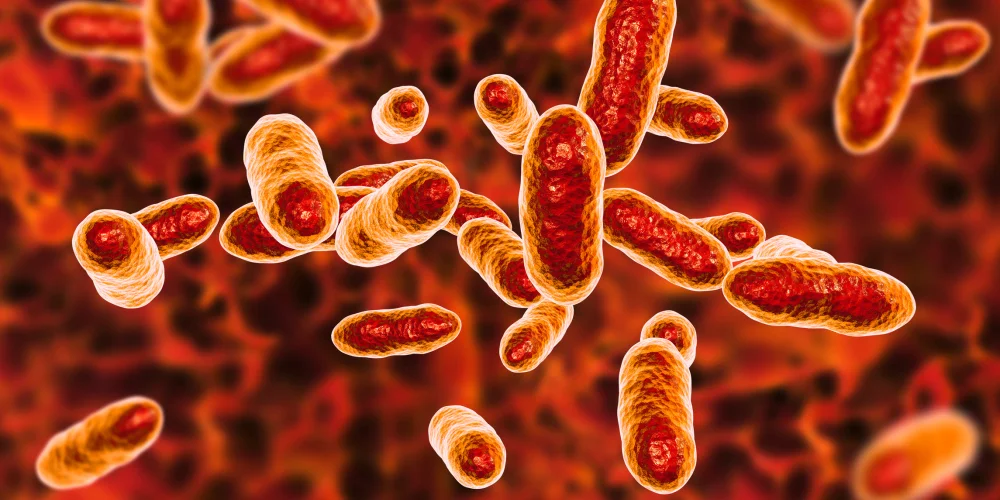Pus C/S Test
Assessment for Bacterial Infections
This Pus Test for Culture and Sensitivity (Pus C/S) test is a diagnostic test that is essential to identify and evaluate the susceptibility of bacteria and the fungi that are found on pus sample. In determining the specific microorganisms causing the infection the test assists health professionals in determining the most appropriate antifungal or antibiotics to treat the problem effectively. This procedure involves the culturing of pus in a sterilized environment to encourage an increase in microorganisms and then testing their sensitivity to various medications. The results aid doctors to provide targeted treatment that is specifically tailored to treat the infection and avoid the spread of or recurrence.

When is the Pus C/S Test Prescribed?
A test called the Pus C/S can be used to be used in these scenarios:
- A suspicion of Bacterial Or Fungal Infection : If patients present with symptoms like localized swelling or redness, pain and pus discharge, it could be the possibility of an infection.
- Chronic or recurring infections : Patients who have persistent or frequent infections, identify the underlying cause and prescribe the appropriate antifungal or antibiotic therapy.
- Post-Surgical Infections : To identify and treat infections that could be triggered after surgery, helping prevent complications and encourage healing.
Preparation for the Pus C/S Test
There is no preparation needed to conduct preparation for the Pus Culture as well as Sensitivity (Pus C/S) test. Pus samples are taken with sterile techniques to eliminate contamination and ensure exact results. It is crucial to inform your doctor about any medication you’re taking as certain antibiotics may affect results of the test. This information helps healthcare professionals understand the results accurately and create treatments that are effective according to the particular fungi or bacteria discovered and their susceptibility to medication.
Parameters Considered During Pus C/S Test
This test, known as the Pus C/S exam consists of:
- Pus Sample Collection : A sample of pus is taken from the area affected by the use of a needle or swab that is sterile for aspiration.
- Culture : The sample is grown in a lab to stimulate the development of fungi or bacteria in the event that they are they are present.
- Tests for Sensitivity : The identified microorganisms are tested against a variety of antifungal or antibiotic medications to identify the most efficient treatment.
Time Required for Pus C/S Test Report
The results from the test generally require a few days. This permits the growth of microorganisms that are in the culture, and a precise assessment of their susceptibility for medications. Quick methods could give preliminary results earlier.
Pus C/S Test Price
The test is offered at Chirayu Super Speciality Hospital, the Pus C/S test price is 1500 rupees. The cost covers the costs of collection of the sample as well as laboratory processing and an expert analysis performed by medical experts.
Book an Appointment for Pus C/S Test
Scheduling an appointment for the Pus C/S test at Chirayu Super Speciality Hospital in Bhayandar is easy. Our pathology lab in Bhayandar allows patients to conveniently book their appointment through the hospital’s website or by calling the customer service team directly. The hospital ensures sterility and efficiency in handling pus samples to guarantee accurate test results.
What Our Patients Say
Hear from our valued patients about their experiences at Chirayu Super Speciality Hospital and how our care has made a positive impact on their health and well-being.


Professionalism and expertise demonstrated during my Pus C/S test appointment.


Highly recommended for precise identification of infection-causing bacteria.


Comprehensive care and clear explanations from the medical team.


Efficient handling of my Pus C/S test sample with detailed results.


Prompt and accurate diagnosis through the Pus C/S test at Chirayu Hospital.


Thorough follow-up and guidance after my test results were available.
Frequently Asked Questions
Here, we provide answers to some of the most commonly asked questions to help you better understand our services, policies, and facilities. If you have any additional questions, please do not hesitate to contact us.
Pus samples are collected using sterile techniques and cultured to identify the specific microorganisms causing the infection.
Results typically take a few days to allow for culture growth and sensitivity testing. Rapid methods may provide preliminary results sooner.
A positive result indicates the presence of bacteria or fungi in the pus sample, helping to diagnose and treat localized infections effectively.
Yes, the test identifies the specific microorganism causing the infection and determines its susceptibility to antibiotics or antifungal medications.
Minimal risks include slight discomfort during sample collection and rarely, infection at the puncture site. Sterile techniques minimize these risks.